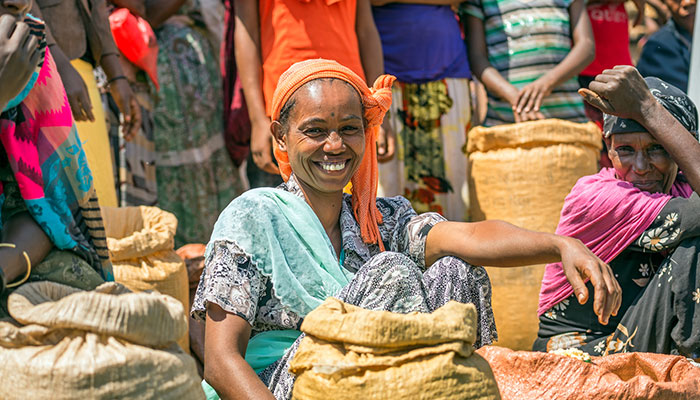Grassroots support for small manufacturers in the world’s poorer countries could help finally end the cycle of poverty and overseas aid dependence, Macquarie Business School research suggests.

Poverty to prosperity: Many people earn as little as $2 a day in less developed countries.
Dominance of third world markets by Western multinationals and a focus on government-led social policy and overseas aid has failed to stimulate lasting prosperity in most poorer countries, says Professor Aron O’Cass, head of the Department of Marketing at the Macquarie Business School.
“Upwards of two thirds of the world’s population live at the bottom of the economic pyramid, most in less developed countries, where many people earn as little as $2 a day,” says O’Cass. “The usual approach to supporting these countries has been at the government and social policy level, not down on the ground. Our view is that if a BoP [bottom of the pyramid] country is to become prosperous, it needs a viable local manufacturing sector, because that’s where employment comes from.”
Manufacturers in developing countries face challenges unfamiliar to those in the West, with limited power, telecommunications and transport infrastructure making distribution and marketing of goods much more difficult.
These challenges are compounded when these countries are flooded with products from global multinationals, often those for which there is no longer a viable market in the West, such as older-model mobile phones.
The question is how we help these countries grow economically—and it isn’t by helping them buy products from the West.
The Macquarie research considered ways to alleviate these systemic problems and generate sustainable prosperity by supporting local manufacturing. With Africa seen as a big opportunity for local and international businesses, it looked at 150 established manufacturing companies in Ethiopia, a country with an estimated market potential of $84 billion according to the International Finance Corporation, which estimates the potential of the wider sub-Saharan region at $429 billion.
“The question is how we help these countries grow economically—and it isn’t by helping them buy products from the West,” O’Cass says. “It’s about developing their own manufacturing base, with products that are designed for the needs of local markets. For example, one of the products we looked at was a solar-powered oven to replace the open cooking fires that create pollution and result in people breathing toxic soot.”
Affordable, relevant products are critical
The research also looked at a firm in Addis Ababa that produces low-cost high protein foods to reduce malnutrition in children, and makes maize, soya bean and corn-based food supplements for use in famine-stricken areas.

A better world: everybody should have what they need, says Professor O'Cass.
“We found that a different approach to product innovation is required in BoP countries than in the West,” he says. “BoP firms need to create affordable products that meet people’s needs but without complex features, which are often irrelevant in their local markets. Effective marketing and customer perception of what we term ‘affordable value’ is critical.”
- Big History gets even bigger, thanks to Bill Gates
- Working from home is more productive, but bosses don't like it
A keen awareness of cultural effects is also important. “In BoP countries, small communities are often very close-knit and local issues are still determined locally,” O’Cass says.
“For example, many regions of Ethiopia still have tribal chiefs as on-the-ground leaders, whereas here we rely on state and federal government. Our research found that local not-for-profit organisations are often therefore the key trigger to supporting product innovation.”
How can we help countries develop in a way that increases their people’s life satisfaction—so they can go to the supermarket, rather than waiting for the next aid shipment.
While competition from Western multinationals can be a threat to fledgling BoP manufacturers, he believes it could instead create an environment where overseas companies see local firms as potential collaborators rather than competitors. “One of our findings was that the more these organisations collaborate, the more successful they become,” he says.
“Ultimately it’s about supporting the development of a world where everybody has what they need, rather than some people having everything and some virtually nothing. And they have nothing because Western nations keep all the sophisticated industry and technology to themselves.
“This was the underlying rationale for our research: how can we help BoP countries develop in a way that increases their people’s life satisfaction—so they can go to the supermarket and buy what they need, rather than waiting for the next aid shipment.”

Professor Aron O'Cass is Head of the Department of Marketing.at the Macquarie Business School.



